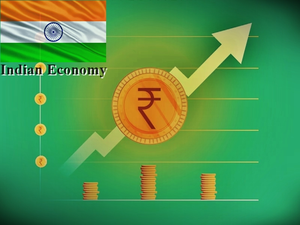Businesses
More than one in five cars sold worldwide is expected to be electric: IEA
New Delhi, April 23 (IANS) More than one in five cars sold worldwide this year is expected to be electric, with surging demand projected over the next decade set to remake the global auto industry and significantly reduce oil consumption for road transport, the new edition of the IEA’s (International Energy Agency) annual Global Electric Vehicle Outlook said on Tuesday.
The Outlook finds global electric car sales are set to remain robust in 2024, reaching around 17 million by the end of the year. In the first quarter, sales grew by about 25 per cent compared with the same period in 2023 — similar to the growth rate seen in the same period a year earlier, but from a larger base.
The number of electric cars sold globally in the first three months of this year is roughly equivalent to the number sold in all of 2020.
In 2024, electric car sales in China are projected to leap to about 10 million, accounting for about 45 per cent of all car sales in the country.
In the US, roughly one in nine cars sold are projected to be electric — while in Europe, despite a generally weak outlook for passenger car sales and the phase-out of subsidies in some countries, electric cars are still set to represent about one in four cars sold.
This growth builds on a record-breaking 2023. Last year, global electric car sales soared by 35 per cent to almost 14 million. While demand remained largely concentrated in China, Europe and the US, growth also picked up in some emerging markets such as Vietnam and Thailand, where electric cars accounted for 15 per cent and 10 per cent, respectively, of all cars sold.
Substantial investment in the electric vehicle (EV) supply chain, ongoing policy support, and declines in the price of EVs and their batteries are expected to produce even more significant changes in the years to come.
The Outlook finds that under the policy settings, every other car sold globally is set to be electric by 2035.
Meanwhile, if countries announced energy and climate pledges are met in full and on time, two in three cars sold would be electric by 2035.
In this scenario, the rapid uptake of electric vehicles — from cars to vans, trucks, buses, and two- and three-wheelers — avoids the need for around 12 million barrels of oil per day, on a par with current demand from road transport in China and Europe combined.
“The continued momentum behind electric cars is clear in our data, although it is stronger in some markets than others,” said IEA Executive Director Fatih Birol.
“Rather than tapering off, the global EV revolution appears to be gearing up for a new phase of growth. The wave of investment in battery manufacturing suggests the EV supply chain is advancing to meet automakers’ ambitious plans for expansion. As a result, the share of EVs on the roads is expected to continue to climb rapidly. Based on today’s policy settings alone, almost one in three cars on the roads in China by 2030 is set to be electric, and almost one in five in both the US and European Union. This shift will have major ramifications for both the auto industry and the energy sector.”
The report finds that manufacturers have taken major steps to deliver on the strengthening EV ambitions of governments, including by making significant financial commitments.
Thanks to high levels of investment over the past five years, the world’s capacity to produce batteries for EVs is well positioned to keep up with demand, even as it rises sharply over the next decade.
The pace of the transition to EVs may not be consistent and will hinge on affordability, the report emphasises.
In China, more than 60 per cent of electric cars sold in 2023 were already less expensive to buy than their conventional equivalents.
However, in Europe and the US, the purchase prices for cars with internal combustion engines remained cheaper on average, though intensifying market competition and improving battery technologies are expected to reduce prices in the coming years.
Even where upfront prices are high, the lower operating costs of EVs mean the initial investment pays back over time.
–IANS
vg/dan
Businesses
Investors’ wealth eroded by a massive Rs 9.19 lakh crore

Investors’ wealth eroded by a massive Rs 9.19 lakh crore on Tuesday as markets came under heavy sell-off with the BSE benchmark index Sensex falling 930.55 points.
Extending its previous day’s decline, the BSE Sensex plummeted 930.55 points or 1.15 per cent to settle at 80,220.72. During the day, it tanked 1,001.74 points or 1.23 per cent to 80,149.53.
The market capitalisation of BSE-listed firms eroded by Rs 9,19,374.52 crore to Rs 4,44,45,649.22 crore (USD 5.29 trillion). “There has been no respite from FIIs selling in local equities in the current month so far, which has been creating uncertainty among domestic investors.
Also, foreign investors are fleeing Indian equities to invest in relatively cheaper locations such as China, especially after the stimulus announcement by its government to boost its slowing economy.
“Along with sectoral stocks, mid and smallcap stocks too bore the brunt as persistent buying had led to valuations in several stocks getting expensive and hence the breather,” Prashanth Tapse, Senior VP (Research) at Mehta Equities Ltd, said.
From the 30 Sensex pack, Mahindra & Mahindra, State Bank of India, Power Grid, Tata Steel, IndusInd Bank, Tata Motors, Larsen & Toubro, NTPC, Bajaj Finance and Reliance were among the biggest laggards. In contrast, ICICI Bank, Nestle and Infosys were the gainers from the pack.
Businesses
NITI Aayog shares a $300 billion economy roadmap for Mumbai Metropolitan Region

Mumbai, Aug 22 (IANS) The NITI Aayog in its presentation to the Maharashtra government on Thursday suggested a roadmap for the Mumbai Metropolitan Region (MMR) to become a $300 billion economy by 2030 from the present $140 billion.
NITI Aayog CEO BVR Subrahmanyam during his meeting with Maharashtra Chief Minister Eknath Shinde and Deputy CMs Devendra Fadnavis and Ajit Pawar, suggested that the state can achieve this ambitious target with the promotion of MMR as global services’ hub, affordable housing and slum rehabilitation, tourism, port-proximate integrated manufacturing and logistics hub, planned urbanisation and intensive transport oriented development, sustainability projects and world-class urban infrastructure and transport.
NITI Aayog has said that the state government can attract a private investment of $125-135 billion, incremental GDP growth of $130-150 billion and additional capital by the state government of the order of Rs 50,000 crore over 5-6 years to chase the goal of making MMR a $300 billion economy.
“MMR is a $140 billion economy across 5 districts and covering 9 municipal corporations with a 25.8 million population and 10 million jobs. Good news is that MMR is on a positive growth trajectory on the back of $50 billion ongoing infrastructure investments. Our vision is to grow MMR into a $300 billion economy by 2030 and $1.5 trillion economy by 2047,” said Subrahmanyam in the presentation.
According to NITI Aayog, MMR has a potential to become a global services hub due to the existing two world-class business districts, Wadala and BKC for financial services and after the development of Navi Mumbai Aerocity as a global aviation city.
It has suggested that the rehabilitation of 2.2 million slums will create new housing stocks in addition to around 1 million affordable housing for low income and middle income group segments.
NITI Aayog has suggested the state can promote two themed tourism development hubs at Gorai and Madh and Alibaug and implement a masterplan for a 300 km coastline.
Further, the MMR can promote port proximate integrated manufacturing and logistic hub with the development of Kharbav integrated logistic cluster as a multi-modal logistic park, circular economy parks and electronic manufacturing and manufacturing cluster for white goods assembly at Khalapur-Panvel section.
In the wake of the development of Rs 76,000 crore Vadhavan port, NITI Aayog has suggested that it can be exploited for the promotion of green hydrogen, steel, chemicals, integrated textiles and apparels.
Further, the NITI Aayog has suggested that the government should release a slew of policies for services, tourism, affordable housing, and transport-oriented development. In addition, the government will have to craft investment promotion and land allocation policy, simplified and enabling urban planning policies, women-inclusivity blueprint and Green MMR policy.
Chief Minister Eknath Shinde has said that the government is focusing on the construction of affordable housing, development of a data center in Navi Mumbai, and completion of Alibaug Multimodal Corridor. Recently, the state government has cleared projects with an investment of Rs 80,000 crore. The government has stepped up efforts to promote tourism along the 720 km coastline.
(Sanjay Jog can be contacted at sanjay.j@ians.in)
–IANS
sj/pgh
Businesses
Finance Ministry sees food inflation easing further on back of better monsoon

New Delhi, Aug 22 (IANS) Inflationary pressures in the Indian economy eased in July and food inflation is expected to come down further with this year’s better monsoon leading to higher agricultural production, according to the Finance Ministry’s monthly review released on Thursday.
Retail inflation based on the Consumer Price Index eased from 5.1 per cent in June 2024 to 3.5 per cent in July 2024, the lowest since September 2019.
This was mainly due to a significant fall in food inflation. It declined to 5.4 per cent in July 2024 from 9.4 per cent in June 2024, the review states.
The substantial fall witnessed in food inflation was helped majorly by a decline in vegetable inflation from 29.3 per cent in June 2024 to 6.8 per cent in July 2024 and mild deflation in ‘oils and fats’ and spices.
On the other hand, core inflation (which excludes food and fuel) was at a moderate level of 3.3 per cent in July 2024.
Overall, the retail inflation rate moderated to 4.6 per cent in the first four months of FY25 as compared to 5.3 per cent in FY24 (April-July), according to the review.
With moderate core inflation and positive progress in the monsoon, the headline inflation outlook is positive. Assuming a normal monsoon, CPI inflation for FY25 is projected at 4.5 per cent by the RBI, with Q2 inflation at 4.4 per cent.
A steady progress in the southwest monsoon has supported agricultural activity. The cumulative southwest monsoon rainfall was 3 per cent higher than the long-period average up to August 19, 2024. Further, the spatial distribution has improved, with 84 per cent of subdivisions receiving normal or excess rainfall. This has enabled healthy Kharif sowing.
As of August 16, the actual sowing area under total foodgrains was 4.8 per cent higher than the corresponding period of the previous year, while progress in cereals and pulses was 4.6 per cent and 5.7 per cent higher than the previous year.
Corresponding to healthy progress in monsoon, availability of water level in reservoirs improving, ensuring water adequacy for irrigation during current Kharif and upcoming rabi crop production. The storage availability in 150 reservoirs as of August 15, was 111 per cent of the corresponding period of last year and 114 per cent of the average storage of the last ten years, according to the Central Water Commission. This augurs well for healthy food production that will aid in cooling food inflation in the upcoming months. Further, to enhance productivity and resilience in the agriculture sector, various measures have been announced in the Union Budget FY25, the Finance Ministry said.
–IANS
sps/vd
Businesses
Indian economy is on upswing: Finance Ministry

New Delhi, Aug 22 (IANS) The Indian economy experienced a notable upswing across various economic indicators in July 2024, signalling strong and resilient business activities with both the manufacturing and services sectors posting a robust performance, according to the Finance Ministry’s monthly review released on Thursday.
“The month saw impressive milestones being reached, substantial growth in GST collections, and a significant rise in e-way bill generation, which points to an overall increase in economic activity. The stock market indices also reached record highs in July,” the review states.
On balance, India’s economic momentum remains intact. Despite a somewhat erratic monsoon, reservoirs have been replenished. Manufacturing and services sectors are expanding, going by the Purchasing Managers’ indices. Tax collections – especially indirect taxes, which reflect transactions – are growing healthily, and so is bank credit, according to the review.
Inflation is moderating, and exports of both goods and services are doing better than they did last year. Stock markets are holding on to their levels. Foreign direct investment is looking up as gross inflows are rising, the review states.
Gross GST collections for July 2024 maintained their momentum, achieving their second-highest level since May 2023. The total gross GST revenue rose by 10.3 per cent year-on-year (YoY), bringing the total for FY 25 (April to July) to Rs 7.4 lakh crore.
This increase in GST collections also highlights robust compliance and expansion of GST coverage across various economic activities.
The upward level shift is reflected in the average monthly GST collections rising from Rs 1.68 lakh crore in FY24 to Rs 1.85 lakh crore in FY25.
The year-on-year increase in e-way bills reached a nine-month peak of 19.2 per cent with the total number of e-way bills issued in July surging to 10.5 crore, setting a new single-month record.
According to the review, the manufacturing sector has continued to demonstrate robust performance in the first four months of FY25, as evidenced by the strong performance of various high-frequency indicators.
The Purchasing Managers’ Index (PMI) Manufacturing, a crucial gauge of the economic vitality of the manufacturing sector, stood at 58.1 in July 2024, significantly above the series long-run average and among the highest recorded in recent years. This expansion, driven by buoyant demand conditions and a surge in production volumes, bodes well for the overall health of the economy.
Similarly, the service sector continued to perform well.
PMI services remained in an expansionary zone at 60.3 in July 2024, driven by expansion in international sales, an increase in new order uptakes, and a rise in new export orders.
Despite a rise in wages and material costs which pushed up business expenses, overall sentiment in the services sector remains upbeat, driven, among others, by an upswing in the tourism cum hotel industry induced by leisure travel, business travel, and social events, the Finance Ministry said.
–IANS
sps/pgh
Businesses
Sensex closes 147 pts up 81,053, Nifty above 24,800

Mumbai, Aug 22 (IANS) Indian stock markets again closed higher on Thursday due to positive sentiment in the markets.
At closing, Sensex was up 147 points, or 0.18 per cent, at 81,053 and Nifty was up 41 points or 0.17 per cent at 24,811.
The market’s positive sentiment was bolstered by optimistic global cues, particularly from the US markets, where the S&P 500 extended its winning streak, reflecting investor confidence amid expectations of potential interest rate cuts by the Federal Reserve.
During the day, Sensex traded in the range of 80,954 to 81,236 and Nifty traded in the range of 24,784 to 24,867.
In the Sensex pack, Bharti Airtel, Tata Steel, ICICI Bank, Titan, Asian Paints, UltraTech Cement, JSW Steel, Maruti Suzuki and SBI were the top gainers. Tata Motors, M&M, Wipro, NTPC, TCS, Power Grid, Sun Pharma, Axis Bank, and Nestle are the top losers.
Thursday’s market rally was led by Nifty Bank which settled up 300 points or 0.59 per cent at 50,985.
Among the sectoral indices, PSU Bank, fin service, FMCG, metal, realty and Private bank were the major gainers. Pharma, IT and energy were the major laggards.
An upward trend was also seen in small and medium stocks in the trading session. The Nifty midcap 100 index was up 400 points or 0.69 per cent at 58,844 and the Nifty smallcap 100 index was at 19,099, up 32 points or 0.17 per cent.
According to market experts, the domestic market witnessed modest gains owing to positive global sentiments.
“Particularly, the recent signs of weakness in the US non-farm payroll data have strengthened the case for potential interest rate cuts in September. However, in the broader market, investors are being cautious, opting for a selective approach, awaiting more clarity from central bank leaders in Japan and the US,” they added.
–IANS
avs/vd
-
Video2 years ago
PM Modi Attacks Congress in Karnataka with “Kerala Story”
-
Politics2 years ago
Siddaramaiah & DK Shivakumar sworn in as Chief Minister & Deputy CM respectively
-
Cricket2 years ago
CSK players rejoice 5th IPL title with their families (Pics)
-
Entertainment2 years ago
Karan Deol weds his longtime Girlfriend Drisha Acharya (Pics)
-
Entertainment2 years ago
Urvashi Rautela dazzles on Cannes 2023 red carpet (Pics)
-
Sports7 years ago
History Of Official FIFA WORLD CUP Match balls
-
Entertainment2 years ago
Sunny Leone gets ready for Kennedy premiere in Cannes (Pics)
-
India2 years ago
Ashwini Vaishnaw: Railway Board recommends CBI probe in the Odisha railway disaster































